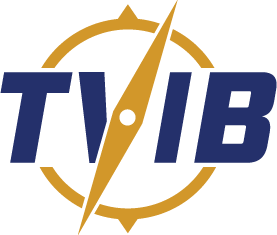On 3/17/2020 the Coast Guard Maritime Commons issued MSIB 02-20 Novel Coronavirus (Change 3).
Excerpt from the original post
The Coast Guard Assistant Commandant for Prevention Policy has published an update March 16, 2020 to MSIB: Novel Coronavirus – Update (Change 2)
An outbreak of respiratory illness caused by a novel coronavirus (COVID-19) may affect mariners and maritime commerce. The Centers for Disease Control and Prevention (CDC) has updated their Interim Guidance for Ships on Managing Suspected Coronavirus Disease 2019 (see https://go.usa.gov/xdfyG) and Cruise Ship Travel (see https://go.usa.gov/xdfVP).
Illness of a person onboard any vessel that may adversely affect the safety of a vessel or port facility is a hazardous condition per 33 CFR 160.216 and must be reported immediately to the U.S. Coast Guard Captain of the Port (COTP). Cases of persons who exhibit symptoms consistent with COVID-19 must be reported to the COTP.
The Coast Guard considers it a hazardous condition under 33 CFR 160.216 if anyone, regardless of where they have been or who they have interacted with, shows symptoms of COVID-19 or other flu like illness. This requires immediate notification to the nearest Coast Guard COTP.
Per 42 CFR 71.21, vessels destined for a U.S. port are required to report to the CDC any sick or deceased crew/passengers during 15 days prior to arrival at the U.S. port. Guidance to vessels to report deaths and illnesses to the CDC can be found at: https://go.usa.gov/xdjmj. U.S. flagged commercial vessels are also advised to report ill crewmembers in accordance with the requirements of each foreign port called upon.
Presidential Proclamations have placed entry restrictions from persons arriving from or through the following countries: Iran, China (excluding Hong Kong and Macau), the European states within the Schengen Area (Austria, Belgium, Czech Republic, Denmark, Estonia, Finland, France, Germany, Greece, Hungary, Iceland, Italy, Latvia, Liechtenstein, Lithuania, Luxembourg, Malta, Netherlands, Norway, Poland, Portugal, Slovakia, Slovenia, Spain, Sweden, and Switzerland), and beginning at 11:59 p.m. eastern standard daylight savings time on March 16, 2020, United Kingdom and Republic of Ireland.
Vessel owners/operators and local stakeholders should be aware of the following:
- On March 13, 2020, Cruise Lines International Association (CLIA) announced that member companies were voluntarily suspending cruise ship operations from U.S. ports of call for 30 days. The CDC issued a No Sail Order on March 14, 2020 to all cruise ships that had not voluntarily suspended operations. The Coast Guard will closely coordinate with CDC to facilitate a safe and expeditious return of passengers onboard cruise ships that are underway and bound for U.S. ports.
- Maritime commerce is vital to the U.S. economy and the Coast Guard has the responsibility to safely enable the uninterrupted flow of maritime cargo.
- Non-passenger commercial vessels that have been to the countries noted above or embarked crewmembers from the countries noted above within the last 14 days, with no sick crewmembers, will be permitted to enter the U.S. and conduct normal operations, provided that crewmembers remain aboard the vessel except to conduct specific activities directly related to vessel cargo or provisioning operations. U.S. citizens or any other persons listed in Section 2 of Presidential Proclamation “Suspension of Entry as Immigrants and Nonimmigrants of Certain Additional Persons Who Pose a Risk of Transmitting 2019 Novel Coronavirus”, for example crewmembers with a transit and/or crewmember visa, may be permitted to disembark the vessel to conduct vessel operations pier side or for the immediate and continuous transit through the U.S. to another country. When entering the U.S. all persons must be cleared by Customs and Border Protection (CBP) and, if applicable, CDC. Crewmembers without the appropriate visas will generally be required to remain onboard unless otherwise cleared for entry by CBP and, if applicable, CDC.
- Non-passenger commercial vessels that have been to the countries noted above or embarked crewmembers from the countries noted above within the last 14 days, and do have sick crewmembers should expect delays and need to work with local health and port officials prior to entry.
- All persons that have been in or through a country listed above may be subject to CDC screening prior to disembarkation.
Vessel owners and operators should be aware of the following:
- The Coast Guard will continue to review all “Notice of Arrivals” in accordance with current policies and will communicate any concerns stemming from sick or deceased crew or passengers to their Coast Guard chain of command and the cognizant CDC quarantine station, who will coordinate with local health authorities.
- All commercial vessel operators and mariners are encouraged to exercise due diligence during daily operations and highly encouraged to follow the CDC Interim Guidance for Ships on Managing Suspected Coronavirus Diseases 2019.
- Vessel masters shall inform Coast Guard boarding teams of any ill crewmembers on their vessel prior to embarking the team.
- Local industry stakeholders, in partnership with their Coast Guard COTP, should review and be familiar with section 5310 Procedures for Vessel Quarantine and Isolation, and Section 5320 – Procedures for Security Segregation of Vessels in their Area Maritime Security Plan.
- Local industry stakeholders, in partnership with their Coast Guard COTP, should review and be familiar with their Marine Transportation System Recovery Plan.
- Maritime facility operators are reminded that they are not permitted to impede the embarkation/disembarkation of crew members as permitted under Seafarer’s access regulations. This authority resides with CBP, Coast Guard, or the CDC for medical matters. Facility operators should contact their local CBP, Coast Guard, or CDC/health department offices if they have a specific request to restrict a crew member’s access.
- he Coast Guard recommends that people review the CDC travel guidance (see https://www.cdc.gov/coronavirus/2019-ncov/travelers/index.html) and the U.S. Department of State (DoS) Travel Advisories related to COVID-19 at https://travel.state.gov/content/travel/en/traveladvisories/traveladvisories.html/ .
Questions about this bulletin should be directed to OutbreakQuestions@uscg.mil
